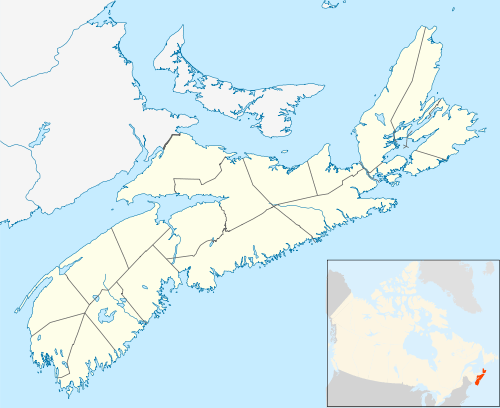Portapique
Portapique is a rural community in the Canadian province of Nova Scotia, located in Colchester County. It has about 100 residents in winter and increases to 250 residents in summer.

Situated near the mouth of the Portapique River, which flows into the Minas Basin, its economy is based mainly on farming and some forestry. The name Portapique originates from French: porc-épic "porcupine". It was the site of an Acadian settlement called Vil Portaupique until the Expulsion of the Acadians in 1755. The community was rebuilt in the late 1760s and early 1770s[1] by Ulster Scots families from the Londonderry Township settlement in nearby Great Village, joined by a later wave of Northern Irish settlers in the 1820s.[2] In the 1840s, the small mixed farms of Portapique developed an important shad fishery, exporting thousand of barrels of pickled shad to the Boston fish markets. A unique regional boat suited to the tidal rivers of the area was developed around Portapique by boat builders such as William G. Hall. The commercial shad fishery collapsed in the 1920s, although a seasonal recreational fishery has remained popular.[3]
In April 2020, Portapique was one of the locations associated with the 2020 Nova Scotia attacks, the deadliest attack in Canadian history.[4]
References
- Fergusson, C. Bruce (1967). "Place-Names and Places of Nova Scotia". Public Archives of Nova Scotia. p. 525.
- Creighton, S. F. (1980). Colchester County: An Illustrated History. Municipality of Colchester. pp. 22–23.
- Colchester Historical Society (2000). Historic Colchester: Towns and Countryside. Nimbus Publishing. pp. 6–7.
- Gillies, Rob (April 19, 2020). "Gunman kills 16 in rampage, deadliest in Canadian history". Associated Press. Retrieved April 19, 2020.